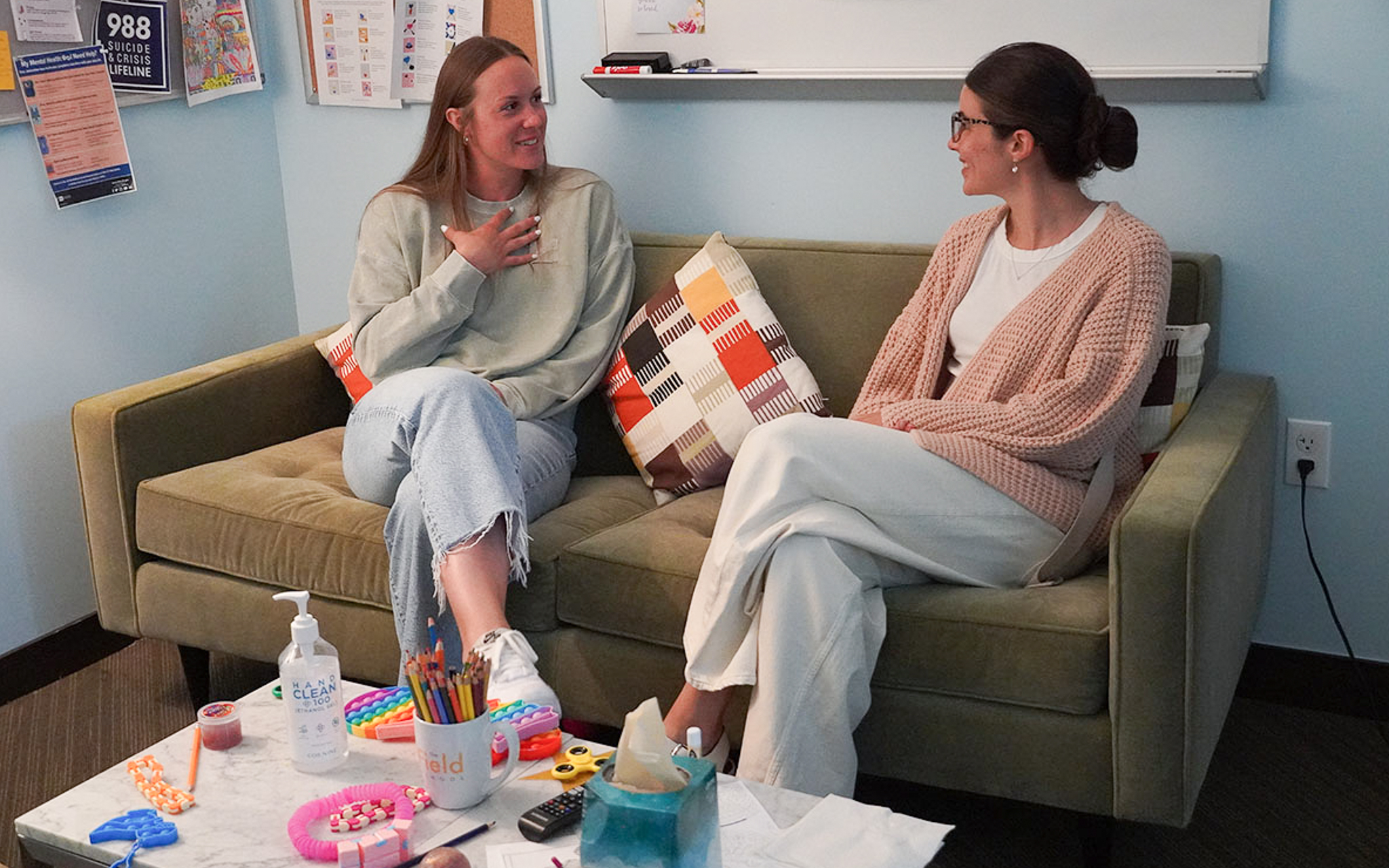
By: Christine Rubin, School Counselor and Alice Mercer, SEL Coordinator & School Counselor
May is Mental Health Awareness Month and Field Counselors Christine and Alice share ways for students to feel better equipped to handle stressors and persevere through the day-to-day challenges they may face.
May is Mental Health Awareness Month and we hope to shed light on some of the ways we can uplift and equip our students with resilience. If you’re like us, you are constantly reading and listening to folks who are sharing the staggering statistics about youth mental health and their struggles. In a screen-based culture, teens can be more isolated, have fewer in-person interactions, and engage in less age-appropriate risk-taking than previous generations. Rates of anxiety are skyrocketing and it has been deemed a national mental health crisis.
So what can we do about it? It can seem like a daunting task to try and tackle the mental health of an entire generation, but there are some ways we can naturally build kids' resilience, so they feel better equipped to handle stressors and persevere through the day-to-day challenges they may face.
Why is resilience so important? It has been shown that more resilient individuals show empathy toward peers, take healthy risks, exhibit self-regulation, and generally feel more optimistic about how a task or project will turn out than less resilient individuals. Resilience can also mitigate some of the negative effects of stress such as anxiety, trouble concentrating, and sleep issues. If that wasn’t enough to convince you, more resilient individuals may feel less stress in difficult situations and are more likely to choose healthy coping strategies when trying to manage adversity.
Pediatrician Dr. Kenneth Ginsburg identified 7 key components of resilience, which he deemed The 7 C’s of Resilience: Competence, Confidence, Coping, Control, Character, Connection and Contribution.
If this all seems overwhelming, let us boil it down for you. When young people have at least one adult loving them unconditionally and supporting them to be their best selves, they are building their own inner resilience. When we demonstrate positive coping strategies ourselves to manage stress, we model resilience and growth for our students. We support our students when we allow for mistakes and recovery within a safe environment. As counselors, we try to ensure every student at Field is seen, heard, and supported for who they are. We offer space for them to learn and grow and show up as their best self while inevitably facing a few bumps along the way.
To kick off Mental Health Awareness Month on campus, we stood outside on May 1st and greeted students with “Coping Skills Bags” filled with small goodies and resources that students can practically use in a moment of overwhelm. Additionally, we reach out to each student individually to offer them a meeting and work tirelessly to stay on top of mental health trends so we can bring relevant social and emotional learning into our advisories.
As summer time quickly approaches, we encourage all our students to rest, rejuvenate, and work on ways to build their inner resilience. Try something new, don’t be afraid to fail, reach out to that friend you have been meaning to get to know better, put yourself out there, and know you have a supportive community at Field waiting to help you bounce back in September.
We’re not just bringing awareness to mental health in celebration of May, but we’re taking it a step further and working to equip this generation with practical skills to manage life’s challenges. We hope to raise awareness and support the next generation of resilient adolescents and teens.
